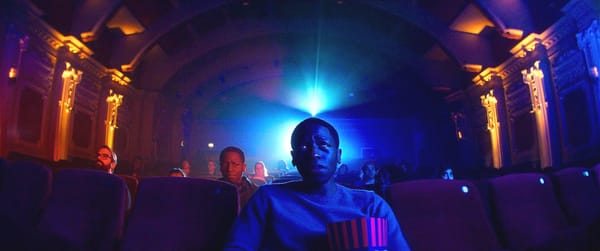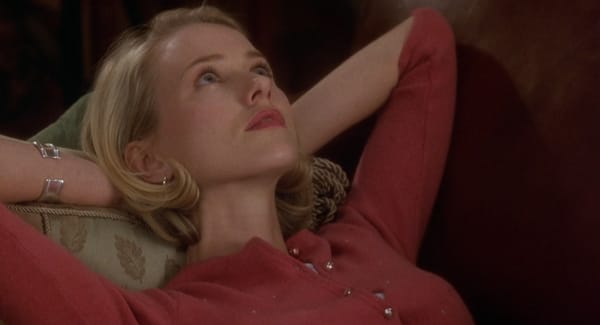What to Watch: "Godland," "After Love," "No Hard Feelings."
Two excellent new films on demand and one JLaw raunch-com in theaters.

Note: The Watch List will be on hiatus next week while the author recharges his batteries someplace beach-ish.
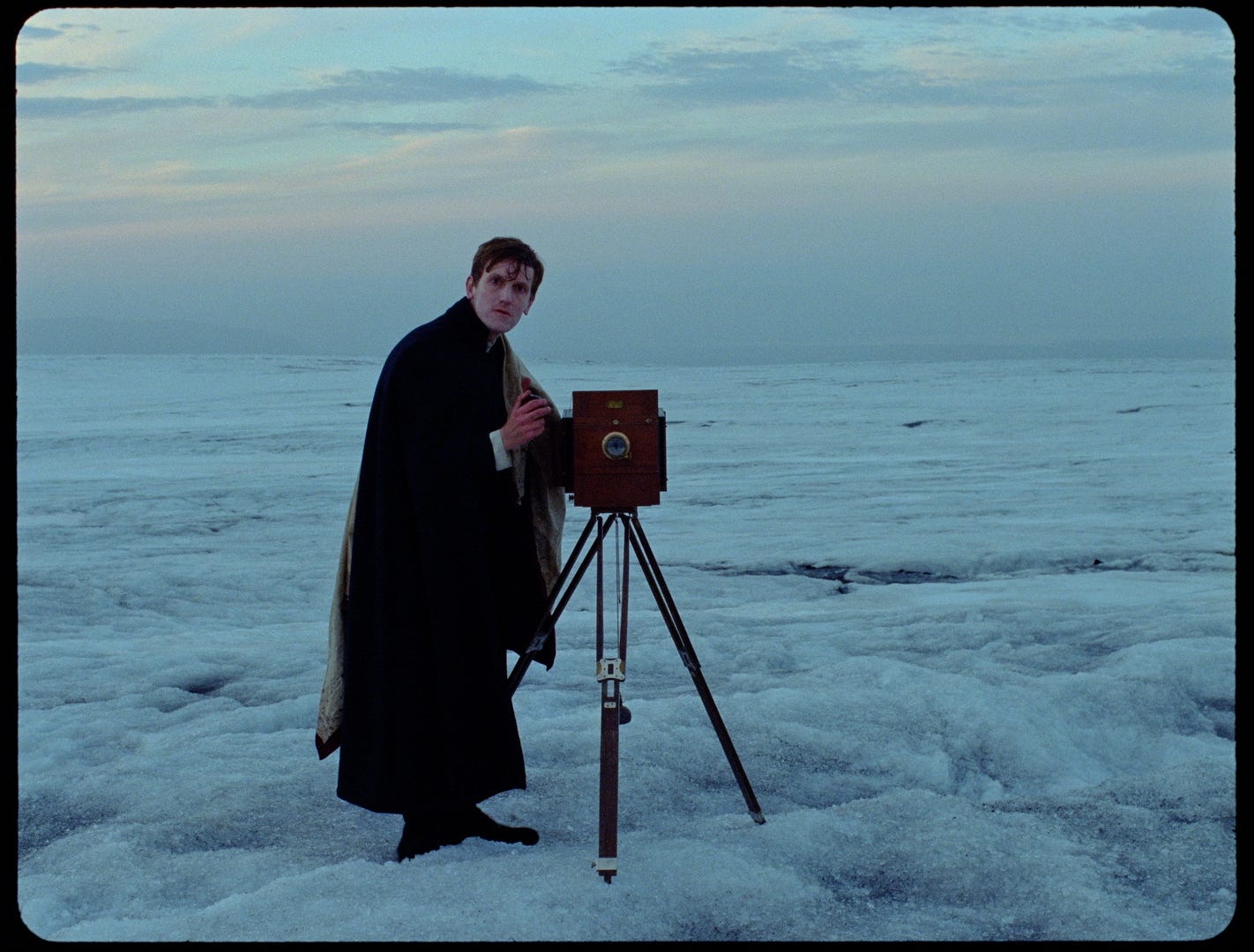
On Demand: “Godland” (⭐ ⭐ ⭐ 1/2, 2022, streaming on the Criterion Channel) plays like it was carved out of glacier and tundra, a two-and-a-half hour epic of spiritual arrogance and human frailty that calls to mind some of the great questers and questioners of world cinema: Herzog, Bergman, Dreyer, Bresson. It’s the third feature from Hlynur Pálmason, an Icelandic writer-director with a visionary tilt and an eye for the harsh, inescapable grandeur of the physical world. Shot by Maria von Hauswolff, “Godland” unfolds in a summer Iceland that feels like a stage-set at the world’s beginnings, but it takes place in the early 1900s, as a young Lutheran priest, Lucas (Elliott Crosset Hove), journeys from Denmark to build a church and minister to the flock in a small Danish settlement. He could sail there easily but chooses to take an arduous overland journey accompanied by a grizzled local guide, Ragnar (Ingvar Sigurdsson), and a young translator (Hilmar Gudjónsson), the better to take photos of the people and land with a heavy box camera. (An opening title claims that the film was inspired by photographs from the era; von Hauswolff’s cinematography, captured on Super 35 film in a boxy Academy ratio with rounded corners, mimics that aesthetic.) The trek, in a northern summer where night never comes, seems a conscious cold kin to Herzog’s “Aguirre, the Wrath of God,” and it undoes the priest physically and mentally. At one point he seems to have been left to die, a moment that bisects “Godland” neatly in two and that Pálmason punctuates with an erupting volcano.
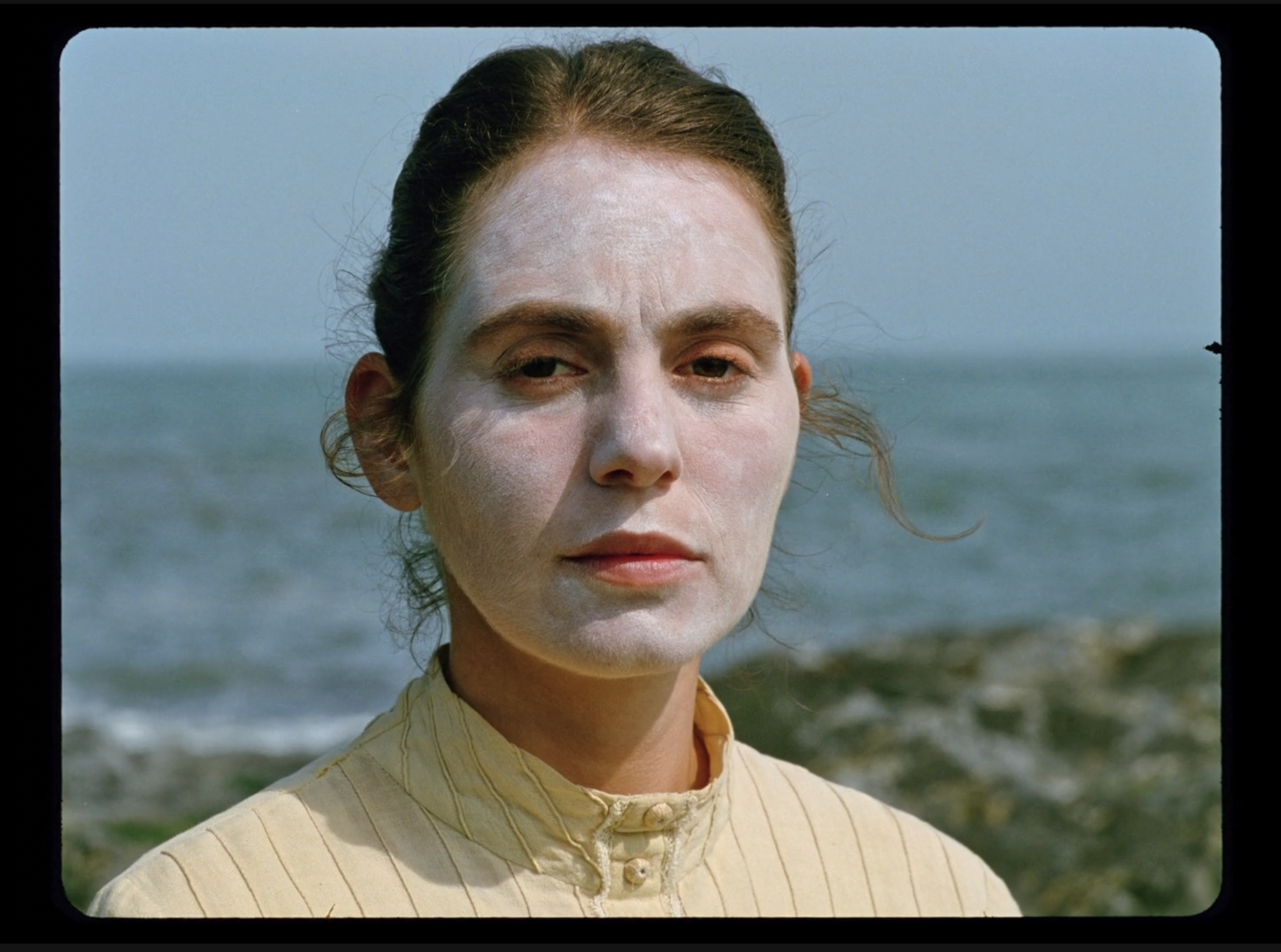

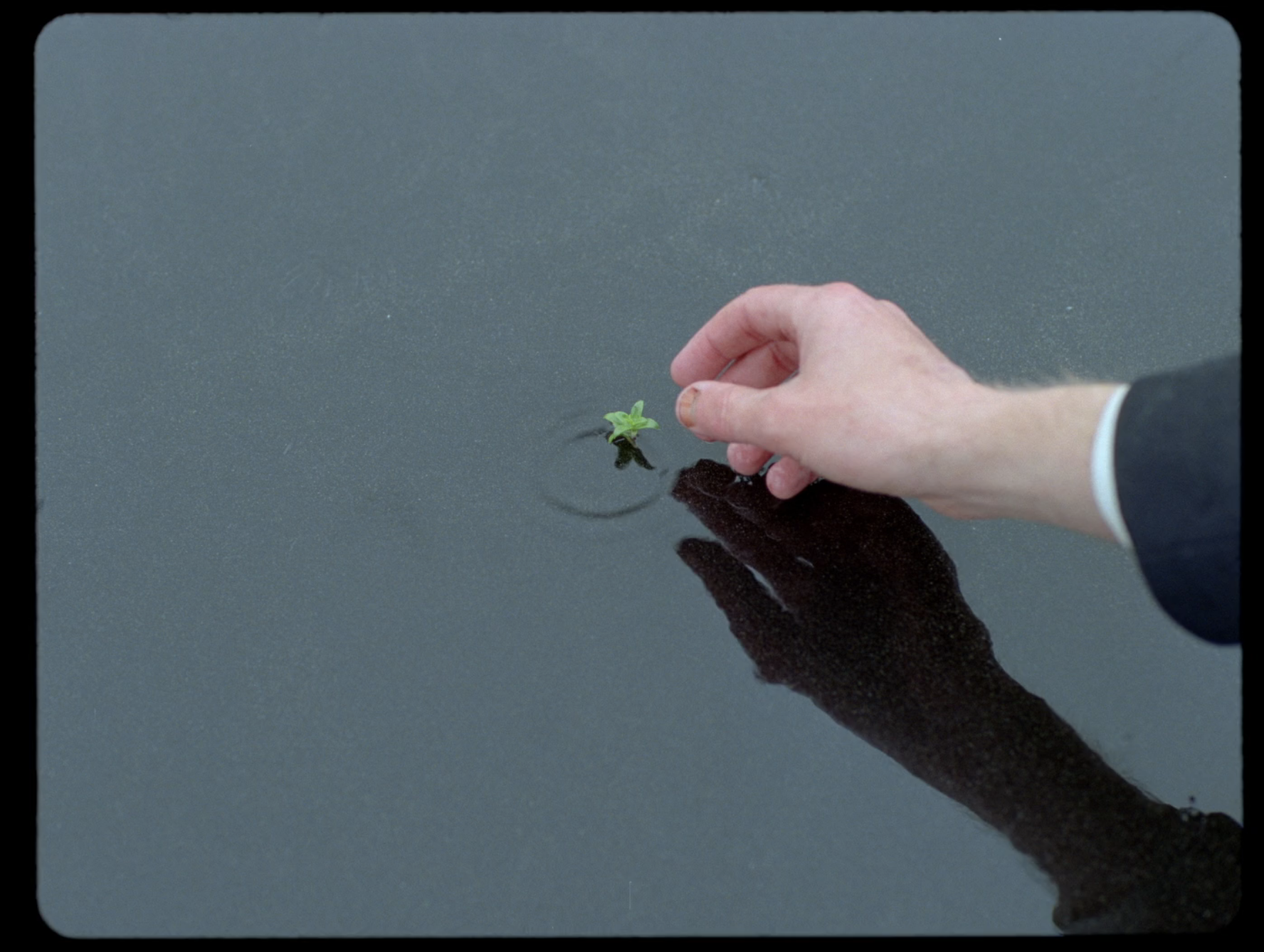

The film’s second half, taking place in the Danish farming village, is more interior and human-sized, yet the themes of sin, guilt, God’s silence, and man’s folly are more clearly on display. The priest has survived his journey but as a different person, with a madman’s eyes and a zealot’s certitude. Which doesn’t damper his attraction to Anna (Vic Carmen Sonne), the daughter of petit bourgeois farmer and local leader Carl (Jacob Lohmann), nor Anna’s for him. (Anna’s younger sister Ida, played charmingly by the director’s daughter, Ída Mekkín Hlynsdóttir, is the movie’s magic child, poised gracefully between civilization and the wild.) “Godland” builds to a dramatic reckoning, but it gets there in lurches of beauty and chaos that feel uniquely Nordic. The score by Alex Zhang Hungtai is made of distant, discordant trumpets that seem to mock the characters from the sky; the music brings bring to mind Charles Ives, untamed Vaughn Williams, and that moment toward the end of Sibelius’ Second Symphony when some huge, half-seen leviathan rises out of the murk and takes shambling steps toward the light.
An interviewer told Pálmason that “Godland” seems both a love letter and a hate-letter to Iceland, and the director laughed and said that that was about right. Icelandic by birth, he has lived and studied in Denmark, and the movie is haunted by the idea of having two homes at once and no home at all. But it’s rare that a filmmaker comes along with such a long-range view of the landscape and man’s tiny, impermanent place in it. Pálmason fills “Godland” with images of growth and decay, time-lapsing a dead horse as it returns to the earth and posing his characters against a vast horizon like images from a Kahn & Selesnick installation.
It's an unforgettable movie yet one whose meanings seem to lie just beyond reach, and it marks the arrival of a new filmmaker whose roots tap into something unfathomably old.
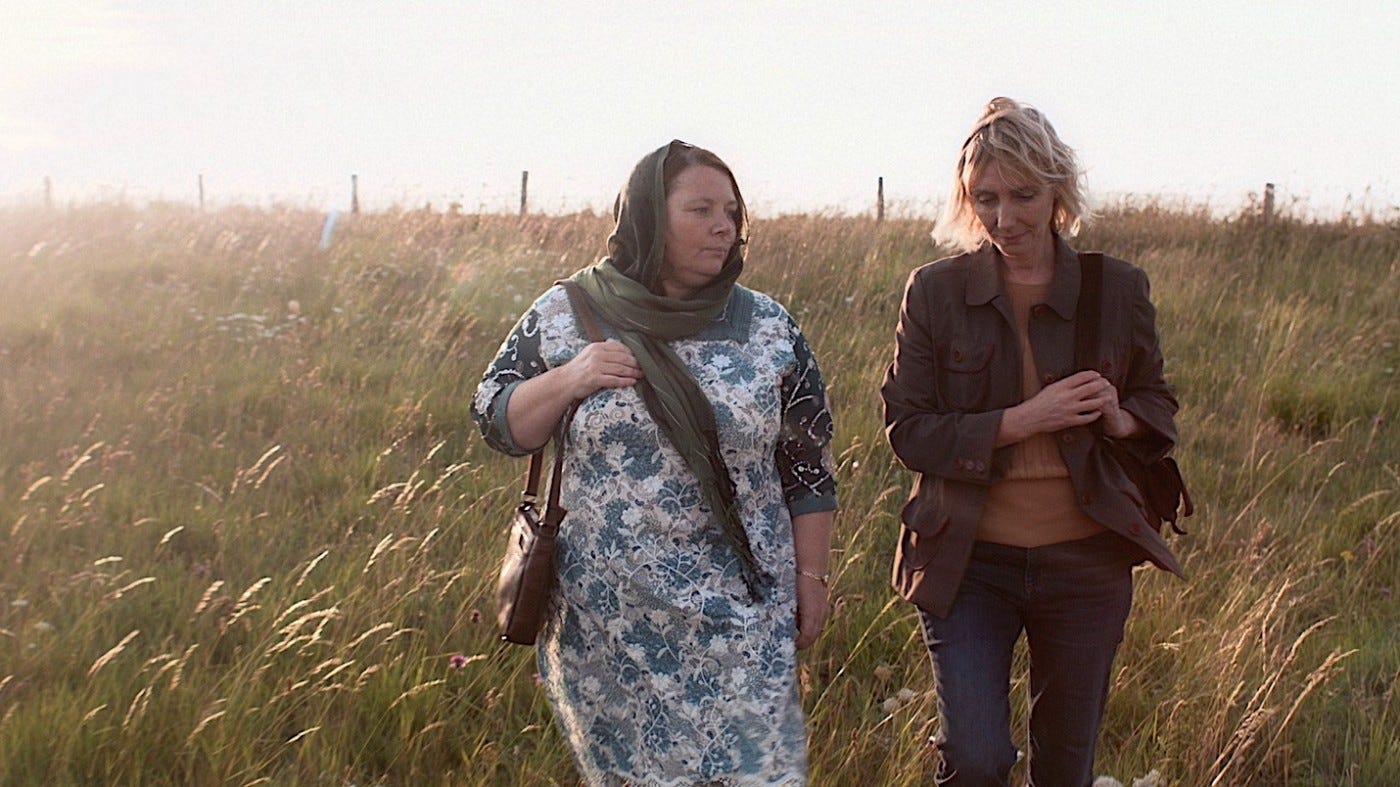
Thanks to Watch List subscribers Heather Faris and Mitch Dynan for alerting me to “After Love” (2021, ⭐ ⭐ ⭐ 1/2), now available for streaming rental on Amazon, Apple TV, Google Play, and YouTube and a delicate yet emotionally charged tearjerker about secrets and lies, as Mike Leigh might put it. Yes, it’s British, and it won Joanna Scanlan the best actress award at the 2022 BAFTAs. Scanlan is better known in England (and virtually unknown here) for her comic roles on British TV shows like “The Thick Of It,” so her performance as Mary, a timid widow who discovers her late husband’s secret second family, represents a radical departure. It’s an exquisite piece of acting, still and even stolid on the outside yet translucent enough to let us see the emotions beating away inside Mary like trapped birds.
The film opens in long shot, with Mary and her husband Ahmed (Nasser Memarzia) returning home from visiting friends; they make cheerful small talk as she puts on a pot of tea and he goes to sit down in the living room. Writer-director Aheem Khan pushes the camera in ever so slightly as Mary brings the tea to Ahmed, who’s fallen silent just out of sight beyond the door frame, and she (and we) begin to register why. Cut to keening mourners at the funeral, wrapped in black chadors and surrounding Mary, a stunned figure in blinding white.
Ahmed was Egyptian, and Mary, an Englishwoman, is a convert to Islam – we learn in dialogue gleaned in pieces throughout the film that they were teenage sweethearts who married over the objections of their families. It seems probable that she was more religious than he was; certainly, Mary took a traditional wife’s role as her husband traveled back and forth to France in his job as a ferryboat captain. And so it’s with shock that she finds on his phone evidence of a longtime relationship with another woman – Genevieve (Nathalie Richard). Forcing herself out of her comfort zone, Mary travels to Calais, works up the nerve to knock on Genevieve’s door – and is immediately mistaken for the cleaning woman hired to help Genevieve pack before moving. Mary goes along with the imposture, and where another movie (and another actress) might struggle with this dramatic stretch, “After Love” gently allows us to buy in. Genevieve is chic, quick, thin; Mary is heavy and ashamed of it and almost pathologically shy. Adding to her confusion and sorrow – and fascination – is the presence of a teenage son, Solomon (Talid Ariss), enough like his father to stop Mary in her tracks and holding secrets of his own.
The movie is about people slowly opening up to each other like a garden of flowers amid plenty of thorns. As Mary comes out of her shell-shock, she reveals a maternal warmth that adds to our understanding of her sorrows, a gift she has never been able to bestow until now. And as Genevieve watches her angry adolescent son bond with this strange Muslim Englishwoman, we see despair and resentment deepen. True to his name, Solomon is poised between two mothers and unable to rip himself in two.
Despite occasional glimpses of the white cliffs of Dover – cliffs that Mary imagines sliding into the sea as her life collapses – “After Love” keeps its canvas small and domestic; it’s a simple film but a rich one. And when it’s over, you come away feeling a little better about people and this sad, hopeful world in which we live.
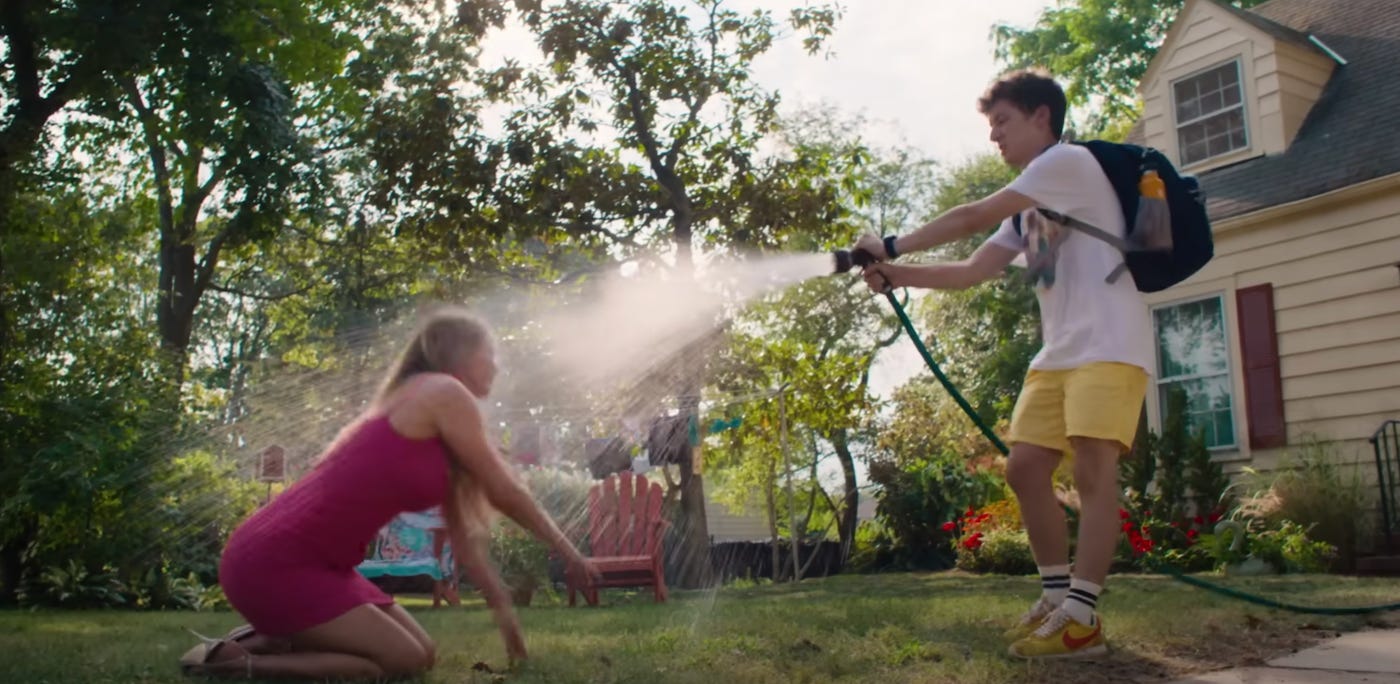
In theaters: My colleagues and I came out of a recent critics’ screening for “No Hard Feelings” (⭐ ⭐ 1/2, in theaters today) and puzzled over who exactly this throwback to raunchy teen comedies of the ‘80s and ‘90s was made for. We decided it wasn’t made for teenagers in 2023 but rather for 45-year-olds who were teenagers in 1993. The movie does everything in its power to tiptoe around the fundamental ickiness of its plot concept, in which parents Matthew Broderick and Laura Benanti hire cash-strapped Montauk townie Jennifer Lawrence, above left, to seduce their nerdy son (played by Andrew Barth Feldman, above right, a former Evan Hansen on Broadway). She’s not a sex worker! She just needs a car so she can raise money Ubering and save her family home from being knocked down for a weekend McMansion! Be nice!
Is the movie funny? In the funny parts. The parts that aren’t funny but are trying to be funny are truly not funny. The parts that are trying to be serious are measurably worse. But Feldman proves to be a smart and lively comic performer, and he gets to show off his singing chops in a terrific dinner-theater rendition of Hall and Oates’ “Maneater.” Lawrence? A roll-on tan does her no favors, but she dives into the slapstick with abandon, and a skinny-dipping scene where her character goes medieval on teenagers trying to steal her clothes is a welcome jolt of over-the-top absurdity. Otherwise, for a movie that, according to its star, has something to offend everyone, “No Hard Feelings” just isn’t all that offensive. It’s enough to send you back to “Risky Business,” which had the advantage of being a good film.
Quick hits: Ari Aster’s Freudian nightmare “Beau Is Afraid” comes to premium VOD today, and while I gave it ⭐ ⭐ when I reviewed the theatrical release, I still have no problem recommending it to fans of movies that take big, bizarre swings at the auteurist piñata. Any film whose cast includes Nathan Lane, Amy Ryan, Parker Posey, and Patti Lupone is worth some attention, and any film that lets Joaquin Phoenix go as far out on a limb as he’s willing is worth more. (It’s perhaps his most extreme performance but also his most reactive.) There are pieces here that are as original as anything you’ll see on a screen this year, but they are, in the end, only pieces.
Also, Wes Anderson’s “Asteroid City” (⭐ ⭐ ⭐) goes into wide release today; I reviewed it last week, if you’re curious.
Classic of the Week: “The Palm Beach Story” (1942, ⭐ ⭐ ⭐ 1/2), on Turner Classics Sunday at 6:15 p.m. and for rent on Amazon, Apple TV, YouTube, and elsewhere. Maybe not top-drawer Preston Sturges but damn close, with Joel McCrea and Claudette Colbert resisting the primal urge to get back together while Mary Astor, Rudy Vallee, and Robert Dudley’s incomparable Wienie King (“I invented the Texas Wienie – lay off ‘em, you’ll live longer”) snipe from the sidelines.
Enjoy your weekend and don’t hesitate to weigh in with any thoughts, stray or otherwise.
If you enjoyed this edition of Ty Burr’s Watch List, feel free to pass it along to others.
If you’re not a paying subscriber and would like to sign up for additional postings and to join the discussions — or just help underwrite this enterprise, for which the author would be very grateful — here’s how.



